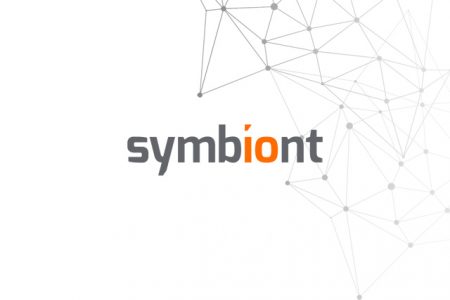The distributed ledger, called Assembly, is the first one that can be used in institutional finance.
Symbiont, a market-leading smart contracts platform for institutional applications of distributed ledger technology, has unveiled a software development kit for Assembly, the permissioned distributed ledger component of Symbiont’s smart contracts system.
Symbiont informs that Assembly is the first distributed ledger that can be used in institutional finance. This secure, high performance Byzantine fault-tolerant distributed ledger is capable of processing 80,000 transactions per second in a regional multi-node network. This is the best result registered in academic studies of the consensus protocol used by Assembly.
“The main difference between Assembly and a traditional distributed log, like Apache Kafka, is that whereas Kafka is “crash fault-tolerant”, Assembly is fully Byzantine fault-tolerant. That means that it can tolerate nodes failing in arbitrary ways, not just crashing. This allows the system to stay operational in the presence of purposefully disruptive and malicious nodes, a critical requirement for a decentralized system where nodes are controlled by multiple, disparate organizations,” says Symbiont.
Symbiont combined tried and true software development principles with an up-to-date microservice architecture to create a distributed ledger with all necessary characteristics required for use in financial markets
“Decentralized systems no longer have to be slow,” said Symbiont’s co-founder and CTO Adam Krellenstein. “With Assembly, we’ve proven that.”
Assembly as an immutable and cryptographically secured datastore and messaging system that serves as the foundation for Symbiont’s Smart Securities® platform. The platform itself enables users to issue, manage, locate and trade traditional financial instruments efficiently in a single, global, peer-to-peer financial network.
The release of Assembly includes the public specifications for a ledger API, a mock ledger server, a ledger client library, example client applications and integration tests, all hosted on the Symbiont GitHub page.
Symbiont has succeeded in creation of a permissioned distributed ledger component while multiple competing companies face challenges in delivering production-ready blockchain technology, ranging from poor performance to instability.
“We’ve proven that we can build a fast, secure and powerful distributed ledger capable of meeting the high demands of institutional finance,” Krellenstein said. “Assembly is now available to developers struggling to achieve an institutional-quality distributed ledger, and we welcome inquiries from those wishing to build blockchain applications on it.”
Symbiont enumerates 15 financial institutions that are using its platform for Smart Loans, arranged by Credit Suisse and executed via its syndicated loans joint venture with Ipreo as well as the State of Delaware for Smart Records and a major European insurance company for Smart Swaps in the catastrophe insurance market.
next